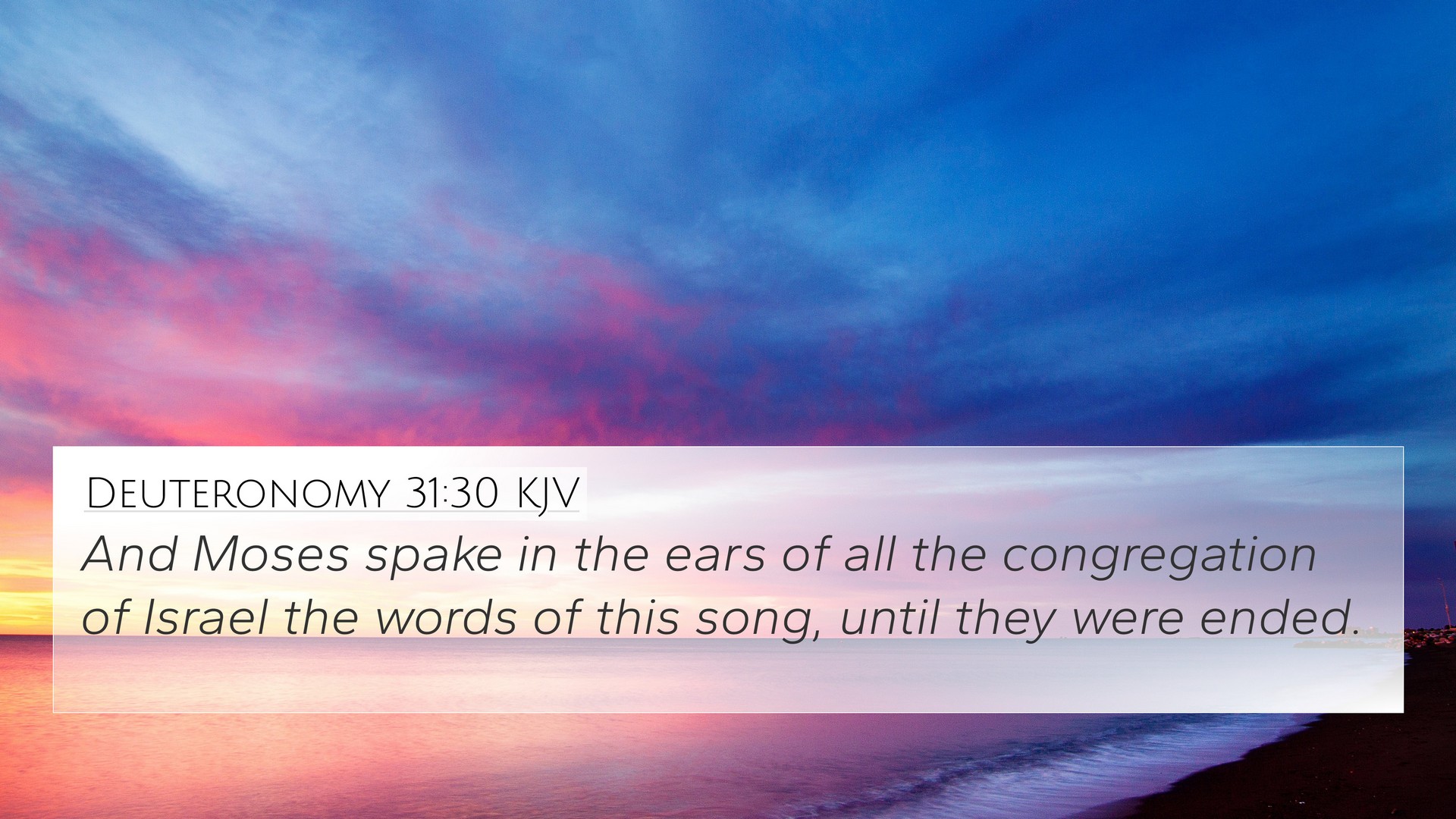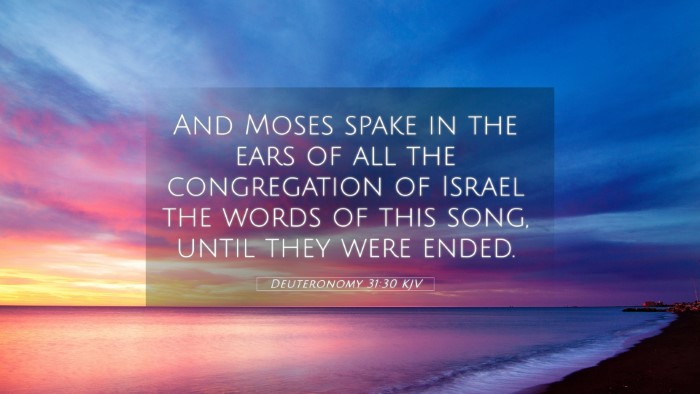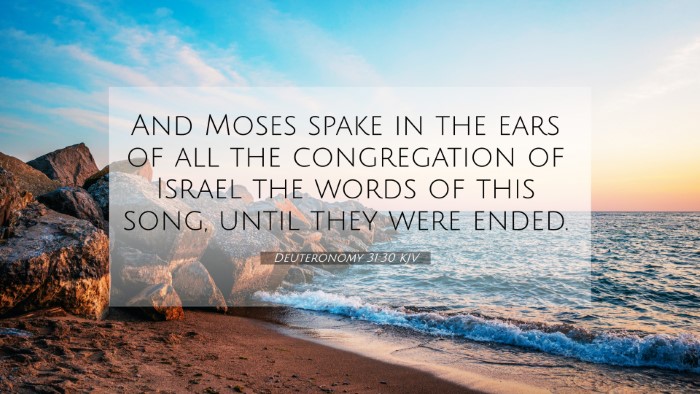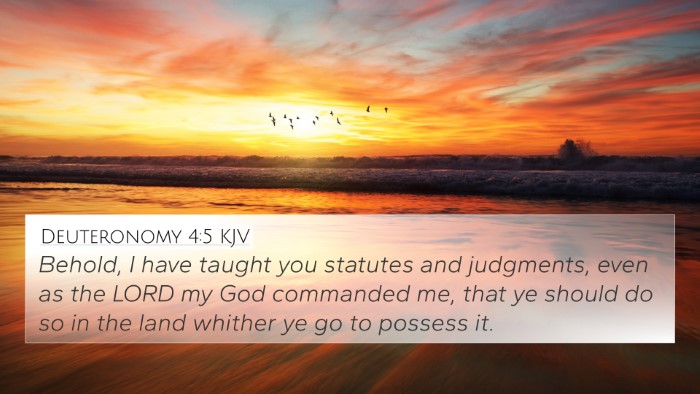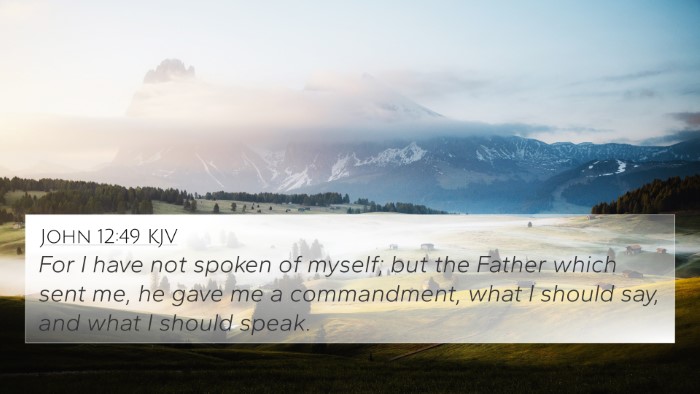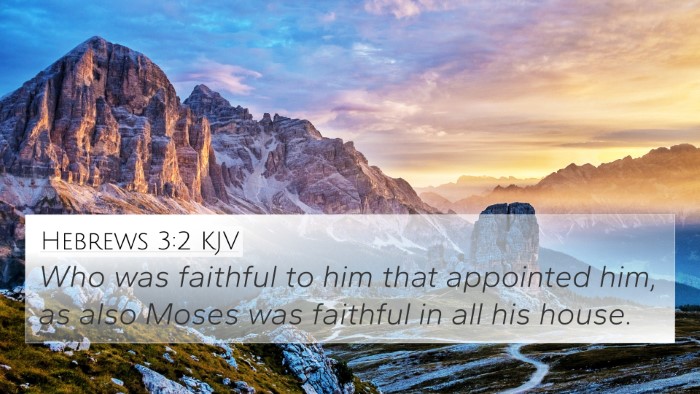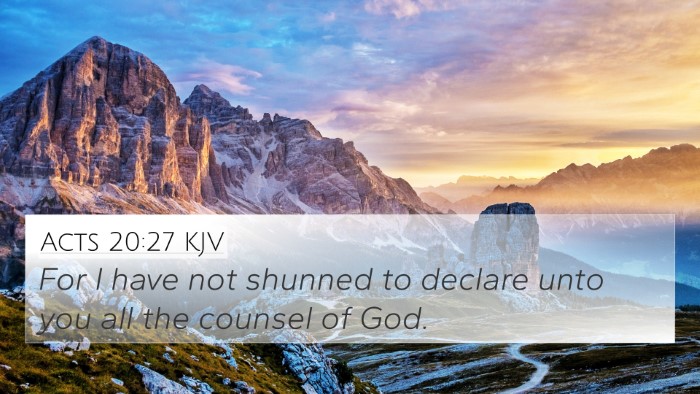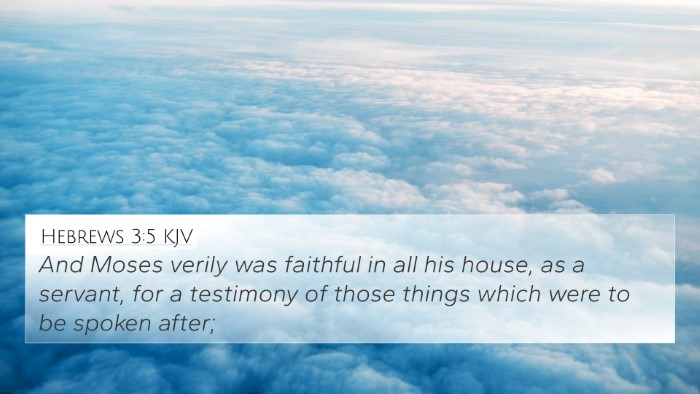Meaning and Interpretation of Deuteronomy 31:30
Deuteronomy 31:30 states: “And Moses spoke in the ears of all the congregation of Israel the words of this song, until they were ended.” This verse marks a significant moment as Moses prepares to deliver a farewell address to the Israelites, encapsulating themes of warning, remembrance, and the importance of obedience to God.
Summary of Insights
Drawing insights from various public domain commentaries, including those by Matthew Henry, Albert Barnes, and Adam Clarke, we can understand this verse in a multifaceted way.
-
Moses' Role as a Prophet: Moses speaks as a prophet, tasked with delivering not only the law but also songs of admonition. This underscores the solemnity of his role in guiding Israel.
-
The Importance of Community: The phrase “in the ears of all the congregation” signifies that Moses addresses not just individuals, but the entire community, emphasizing collective responsibility.
-
Use of Song in Teaching: The use of song as a method of teaching is significant here; it aids memory and learning. Songs have the power to resonate emotionally and are an effective means of communicating important truths.
-
A Reminder of God's Faithfulness: The song to follow serves as a reminder to Israel of God's faithfulness and their own tendencies toward forgetfulness. It is a call to remember their covenant with God.
-
Foreshadowing Future Events: This song, as a prophetic message, foreshadows the difficulties Israel will face and provides a framework for understanding their relationship with God.
-
Linking with Biblical Themes: The themes presented in Moses’ song connect with numerous other scriptures that highlight Israel’s history, struggles, and God’s enduring presence.
-
Theological Reflections: Theologically, this verse invites reflections on themes of worship, devotion, and the consequences of disobedience, as seen throughout the Biblical narrative.
Bible Cross-References
Several Bible verses connect with Deuteronomy 31:30, revealing inter-Biblical dialogues that enhance understanding of the text:
- Exodus 15:1-2: Moses leads Israel in a song after their deliverance from Egypt.
- Psalm 78:1-4: A call to share the stories and teachings of God with future generations.
- Joshua 24:25-27: Joshua also reminds the people of God’s covenant and serves as a spiritual leader.
- Isaiah 5:1: A song sung to symbolize God’s love and disappointment regarding Israel.
- Revelation 15:3: The song of Moses sung in the context of the end times, signifying redemption and triumph.
- Hebrews 2:12: Quoting Psalm 22, which involves proclaiming God's name in the assembly.
- Micah 6:5: A reminder of what God has done for His people, urging them to remember His acts.
Thematic Connections
The themes presented in Deuteronomy 31:30 echo throughout the Bible, revealing a comprehensive narrative of God’s relentless pursuit of His people and their call to remember His works. These thematic connections create a larger context for understanding scripture, enhancing our study.
Tools for Bible Cross-Referencing
To effectively delve into the relationships between verses, tools such as a Bible concordance or a Bible cross-reference guide can be invaluable. These resources allow for a deeper exploration of how Scriptures relate to one another, enriching one's understanding of the Bible as a cohesive whole.
How to Use Bible Cross-References
Cross-referencing Bible study involves systematically identifying links between verses. Here’s how you can engage in this practice:
- Identify key themes or words in a verse.
- Use a concordance to find other verses that contain similar themes or words.
- Compare the context of these verses to gain additional insights.
- Record your findings to see how they weave together the narrative of salvation history.
Conclusion
Ultimately, the verse Deuteronomy 31:30 serves as a profound reminder of the importance of collective remembrance and instruction through song. As Moses prepares Israel to enter the promised land, he emphasizes their need to remember the words of the law through shared community experiences. The connections between Bible verses not only foster a deeper understanding but also encourage a holistic view of God's ongoing narrative with His people.
